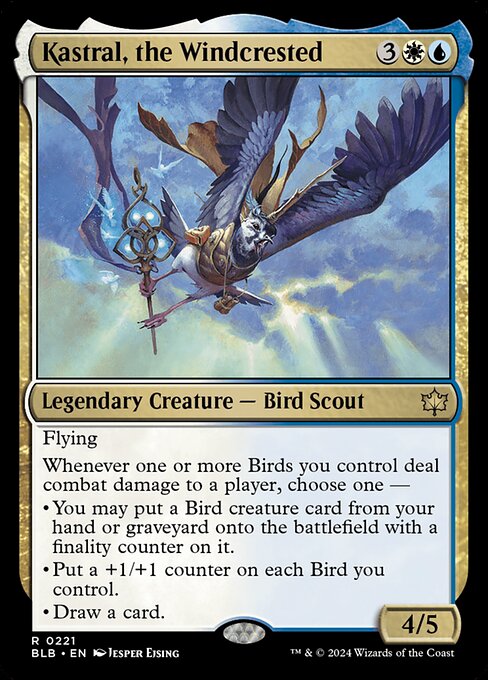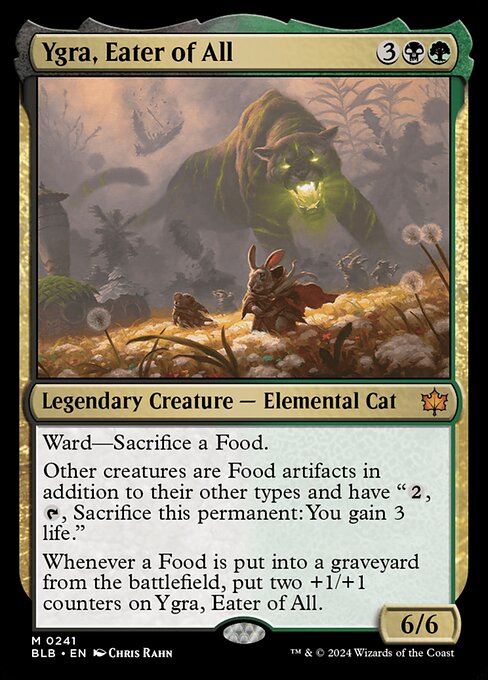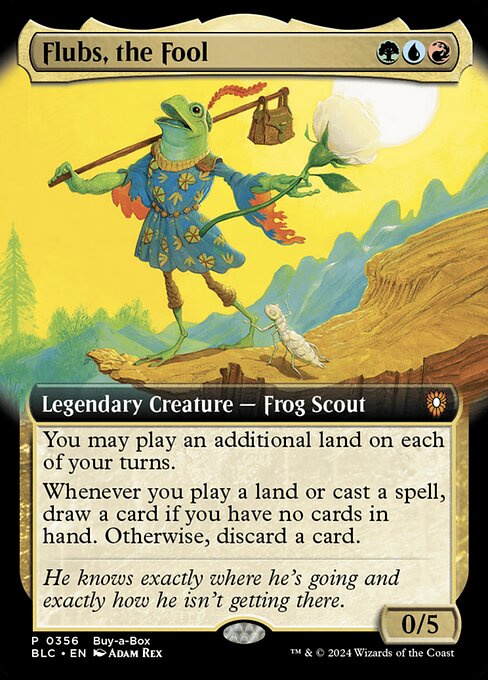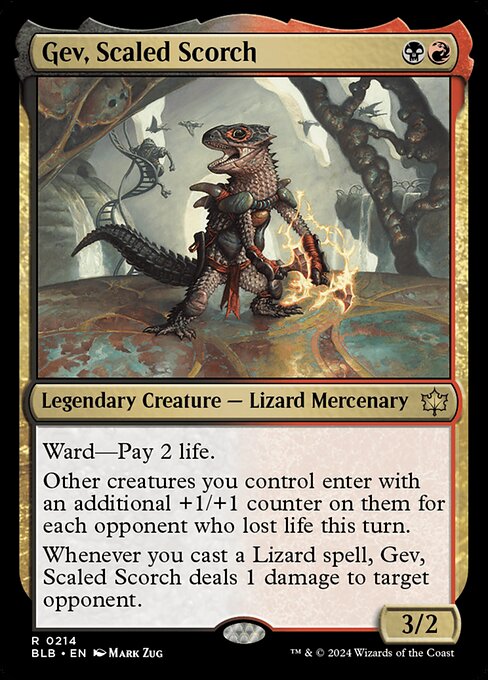Deck & Commander Strategies

Kastral, the Windcrested
Flood the board with Birds, leveraging tribal synergies and evasive flying creatures to apply pressure and draw cards, eventually winning through incremental aerial damage.

Flubs, the Fool
Utilize discard mechanics to draw cards and play additional lands, creating card advantage and a steady flow of resources to outvalue opponents.

Gev, Scaled Scorch
Play a lizard tribal deck that drains opponents’ life through lizard synergies and doubling triggers, aiming to win via consistent life loss and board presence.

Ygra, Eater of All
Build a Voltron-style deck that converts creatures into food tokens, leveraging artifact and token synergies to grow and protect the commander while generating incremental advantage.
Gameplay Insights
- 1
Wally’s use of Roaming Throne doubled the triggers for lizard abilities, significantly amplifying the effectiveness of Gev’s tribal synergies.
- 2
Nathan’s Chatterfang generated multiple tokens in response to food creation, enhancing board presence and synergy with Ygra’s sacrifice mechanics.
- 3
Flubs’ discard ability was used intentionally early to cycle through the hand and play multiple lands, ensuring a smooth mana curve and card advantage.
- 4
Christian repeatedly leveraged evasive flying creatures to chip away at opponents’ life totals, establishing steady pressure while maintaining board presence.
- 5
Players carefully balanced aggressive plays with resource management, showing the importance of incremental advantage and synergy in multiplayer Commander.
Notable Cards
-
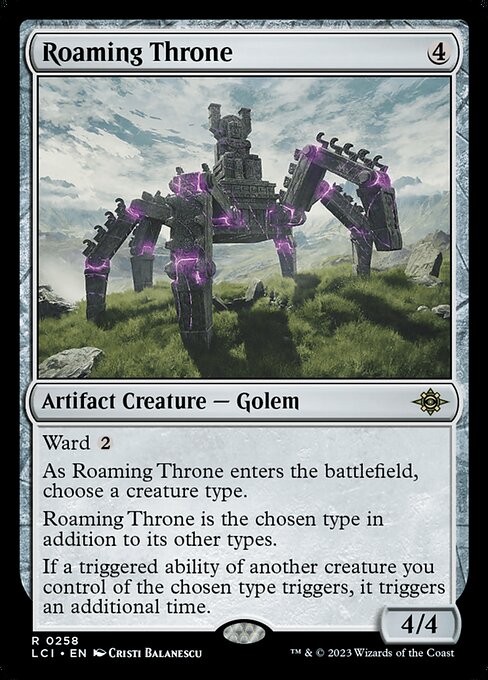
Roaming Throne
-
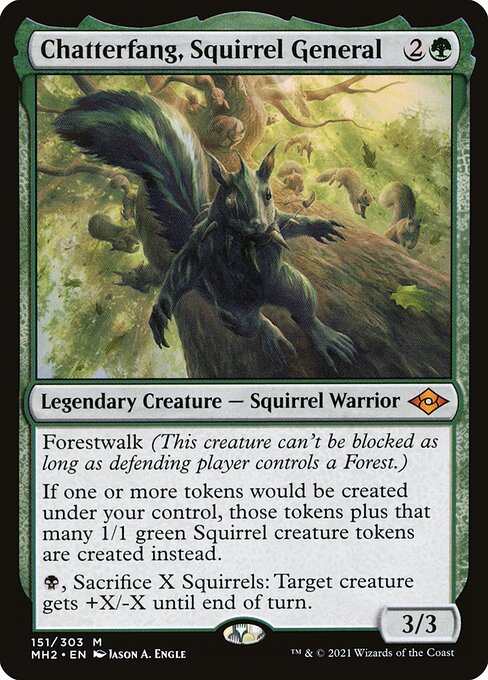
Chatterfang, Squirrel General
-
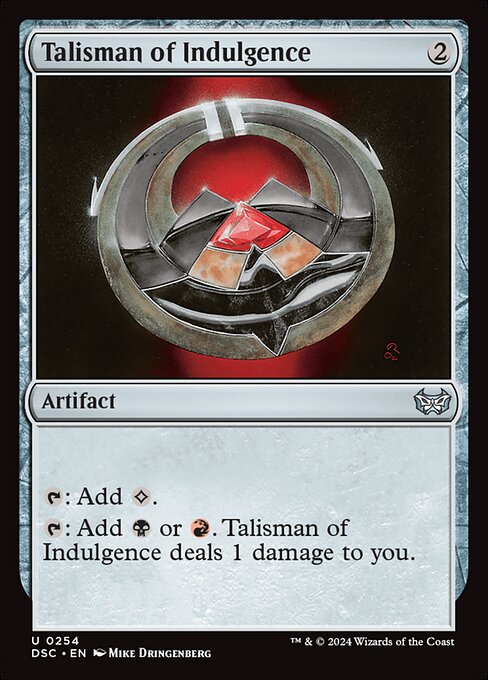
Talisman of Indulgence
-

Sulfurous Springs
Gameplay Summary
The game began with each player developing their board state according to their unique commander strategies.
Christian, piloting Kastral, the Windcrested, focused on casting numerous Birds and leveraging their synergy, aiming to flood the board with evasive flyers and build up a strong aerial presence.
Meanwhile, Ollie on Flubs, the Fool, utilized the deck's ability to discard cards to draw lands and maintain card advantage, setting up for a slow but steady advantage through incremental value.
Wally, with Gev, Scaled Scorch, prioritized playing lizards and draining opponents' life, using abilities that trigger more often due to lizard tribal synergy.
Nathan, commanding Ygra, Eater of All, played a Voltron-style deck that turned creatures into food tokens and used artifact and token synergies to grow and protect the commander while generating value from sacrifices. Early turns saw players developing their mana bases, casting utility creatures, and setting up synergy pieces such as Roaming Throne for lizards and various token generators for Ygra’s food engine.
Flubs’ discard mechanic enabled multiple land drops and card cycling, while Kastral deployed a steady stream of flying creatures to pressure opponents.
Key turning points included Wally casting Roaming Throne, doubling lizard triggers, significantly enhancing his board presence, and Nathan establishing a food token engine with Chatterfang, Squirrel General, spawning multiple token creatures.
Combat was cautious but consistent, with Kastral’s flying creatures chipping away at life totals.
The game’s momentum swung as Ygra’s synergy grew, threatening to overwhelm with food tokens and counter-based buffs, while Gev’s draining effects steadily reduced opponents’ life totals. The game appeared poised for a finish involving Ygra’s Voltron strategy or Gev’s draining lizards, with Kastral’s birds providing aerial pressure and Flubs aiming to maintain resource advantage via discard synergy.
The interplay of tribal synergies and incremental card advantage shaped the midgame, creating a dynamic battlefield where each player balanced board development with careful resource management.
The match demonstrated the power of tribal synergies in a multiplayer setting and highlighted the value of incremental advantage through discarding and token generation.


